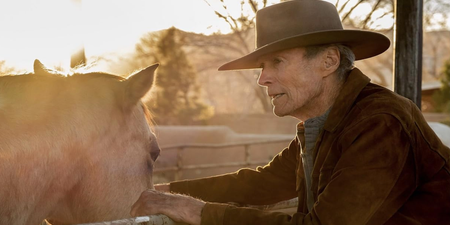By careers expert Eoghan McDermott
“By failing to prepare, you are preparing to fail.†A version of this quote was made famous here by Roy Keane, but was originally coined by Ben Franklin.
That’s the same eejit who flew a kite in a thunderstorm. Ok, so he was also a leading author, satirist, political theorist, politician, scientist, inventor, civic activist, statesman, soldier and diplomat. But clearly not a patch on Roy when it comes to preparing for a big game.
The same principal applies to preparing for a job interview. If you really want the gig, you can either prepare properly, or just fly a kite and see what happens.
There are a few of skills that are common to all roles: technical qualifications, communication skills and customer focus.
When preparing for the match, you figure out who you’ll be marking, what tactics the opposition uses, what game-plan your team is going to apply. You know exactly what you need to do. A good job interview is the same. You need to know what the employer is looking for, what skills you need to do the job and how you can prove you can do it, under pressure in a short space of time.
Before you run onto the interview pitch, figure out what’s needed of you to do the job. There are a few of skills that are common to all roles: technical qualifications, communication skills and customer focus show up on 75% of job descriptions. Those job descriptions are a good guide, but if you don’t have those to hand, think of what skills you need to do the job well. For example if you’re going for a job as a bank manager, you’re going to need management skills, business acumen and an ability to meet deadlines.
If you’re going for a job as an engineer, you’ll need team working skills, crisis management, an attention to detail and an understanding of the industry. The easiest way to figure out what’s required is to ask someone already doing the sort of job you are after.
The second easiest is to ask yourself what your first day at work would be like and what skills you’d deploy. If it’s a day of meetings, then you need communications skills. If you’re starting with a team briefing, then you need to be able to motivate staff. If you’re going to be digging through the sales figures for a division, then you need a capacity to analyse.
Remember, remember
When you figure these out, isolate one at a time and get remembering. Get remembering because you need to be able to illustrate your ability through examples of past experience. If you say in the interview, “I can manage peopleâ€, the response will be some form of “prove itâ€. It’s like telling the coach, “I can stick the ball over every time from the 45.†His response will be “Out you go and show me.†(Yep, the analogy has now slipped from footie to GAA – this isn’t literature.)
The only way you can show the interviewer is by telling them about a specific time where you did it. So, go back to the skills and begin to examine your career to date. What’s your best example of managing people, or communicating, or motivating, or whatever it is the interviewer will need?
Students find this process tough because they’ve little work experience. But a little thinking might cough up a project done in school or college, where a group of different personalities had to be briefed, motivated and helped to deliver on an objective by a deadline without slapping the heads off each other. Remember, when you’re looking at your examples, it’s not just your experience, but how and why you did what you did.
Show the interviewer what you learned from each experience, then link the experience back to the role that you’re applying for. It’s like after you crack the dead ball over the bar from every possible angle; tell the manager that not only can you do it in training, but you’ll do it next week to bury that crowd from Sylvesters. (Now we’ve gone seriously parochial – but I just can’t stand those smug friggers.)
Of course, there is another quote that’s extraordinarily relevant “90% of success is just showing upâ€. There’s pretty much no way of getting around pulling a no show at an interview, regardless of your preparation. (Is it time to haul the analogy back to footie, the World Cup and Roy Keane? Perhaps not.)
Eoghan McDermott is Head of the Careers Clinic in the Communications Clinic.
LISTEN: You Must Be Jokin’ with Aideen McQueen – Faith healers, Coolock craic and Gigging as Gaeilge





















































